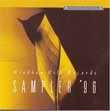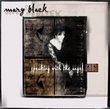| All Artists: Sonia Rubinsky Title: Villa-Lobos: Piano Music Vol. 1 / Rubinsky Members Wishing: 0 Total Copies: 0 Label: Naxos Release Date: 3/23/1999 Genres: Pop, Classical Styles: Vocal Pop, Historical Periods, Modern, 20th, & 21st Century, Symphonies Number of Discs: 1 SwapaCD Credits: 1 UPC: 636943448922 |
Search - Sonia Rubinsky :: Villa-Lobos: Piano Music Vol. 1 / Rubinsky
 | Sonia Rubinsky Villa-Lobos: Piano Music Vol. 1 / Rubinsky Genres: Pop, Classical
At last, a replacement for Roberto Szidon's long-deleted recording of Cirandas! This is one of Villa-Lobos's most delightful works, a long piano suite (41:46 in this recording) of folk-flavored pieces that progress from on... more » |
Larger Image |
CD DetailsSynopsis
Amazon.com At last, a replacement for Roberto Szidon's long-deleted recording of Cirandas! This is one of Villa-Lobos's most delightful works, a long piano suite (41:46 in this recording) of folk-flavored pieces that progress from one charming idea to another and never outlast their material. The Baby's Family, the first of two suites, is also charming music, made popular by Artur Rubinstein. The Chopin tribute is one of those crocks of musical dishwater Villa-Lobos stuck his hands into when his mind was on something else, but it's brief and comes at the end of the disc. Brazilian pianist Sonia Rubinsky plays with stylistic insight and gorgeous piano tone, very well captured by Naxos in a recording that sat in the can for almost five years before it was finally issued. --Leslie Gerber Similarly Requested CDs
|
CD ReviewsWonderful! 09/11/1999 (5 out of 5 stars) "I was already a fan of Villa Lobos' music and I really enjoyed this CD . The pieces were well chosen and the piano playing is great. The music is full of contrasts: soft and strong, playful and sad, rebellious and harmonic. As a Brazilian, I know these songs from childhood and to hear them in this CD is a real pleasure, particularly "Nesta Rua" and "Terezinha de Jesus". The pianist is flawless both in her technique and in her interpretation of the pieces. Her identification with the music is so complete that we feel her enjoyment in playing them." Charming Villa-Lobos pieces for children. darragh o'donoghue | 12/17/2001 (4 out of 5 stars) "The move from the large-scale orchestra we may be more familiar with to the piano does not mean that the music of Villa-Lobos loses any of its energy, rhythm, colour or beauty. The two major works here, 'A Prole do Bebe' (the Baby's family) and 'Cirandas' (a Portuguese dance) evoke the world of childhood, and are said to belong to the traditon of Schumann and Tchaikovsky, but the warm colours and rich harmonies are more tropical than those chilly Europeans, with Villa-Lobos brilliantly incorporating and reworking Brazilian folk material. The first wittily depicts the personalities of a child's dolls; the set of dances push their good-natured skittishness into real emotion at times. The 'Homage a Chopin' give a famously restrained and reflective idiom some sunny and dramatic virtuosity. Brazilian pianist Sonia Rubinsky knows these pieces and their influences well, and responds to them with intelligence, empathy and humour." Rubinsky : a new reference in Villa Lobos Osvaldo Colarusso | Curitiba, Paraná Brazil | 04/18/2005 (5 out of 5 stars) "When Villa Lobos listened for the first time the works of Debussy and Stravinsky ( The Russian Ballets of Diaghlev danced in Rio de Janeiro in 1913 and 1917) he found the way to create something really adequate to involve Brazilian authentic tunes . The first important period of Villa Lobos as a composer involve two series of works: The Prole do Bebê ( No 1 and No 2) and the Choros. Prole do Bebê is full of Pentatonic and whole tone scales, and the Harmony of some of the pieces are deeply influenced by Stravinsky: The Polichinelo is a Brazilian brother of the Russian white/black harmony of Petrushka. For the first time one Brazilian composer was proud of our authentic songs and he placed these lovely melodies in the middle of a very sophisticated piano writing and with new harmonies that fitted wonderfully with his purposes. The Cirandas is also involved with the child's world. I would like to remember that The Cirandas are not important only as a wonderful composition, but I'm sure too that without this work a lot of authentic folkloric melodies would be lost ,as our childs don't play no more singing these melodies. Times of globalization...
The Prole No 1 and the Cirandas are among the most often played and recorded piano works of Heitor Villa Lobos. The references for the Prole do Bebe No 1 are of course Aline van Barentzen , that recorded the Prole 1 and 2 in Paris for EMI in the presence of the composer ( unfortunately the CD version of the album "Villa Lobos par lui meme" doesn't include this important recording, that was present in the LP version), Nelson Freire( unfortunately he recorded only the Prole 1) and Anna Stella Schic . For the Cirandas the references are again Anna Stella Schic ( the only pianist that recorded the complete works for piano by Villa Lobos), Roberto Szidon and Caio Pagano. I'm profoundly satisfied with this first record of this important project ( It will be a series of 9 Cds, I believe). Sonia Rubinsky plays very well, and I would like to prize her attitude about the fidelity towards the printed score. As the Prole do Bebe No 1 includes some very often played compositions , they are normally played with some liberties and "traditions". As Mahler used to say, "Tradition is Schlamperei". I really prefer to listen these pieces as Sonia Rubinsky plays: as they are written. One can prefer the exceptional musicality of Nelson Freire in the Prole, or the analytical sound of Caio Pagano in the Cirandas. But Sonia is a first rate pianist too. She has a wonderful sonority .With her flawless musicality we can say that this integral began as a new reference in Villa Lobos discography . " |

 Track Listings (26) - Disc #1
Track Listings (26) - Disc #1








